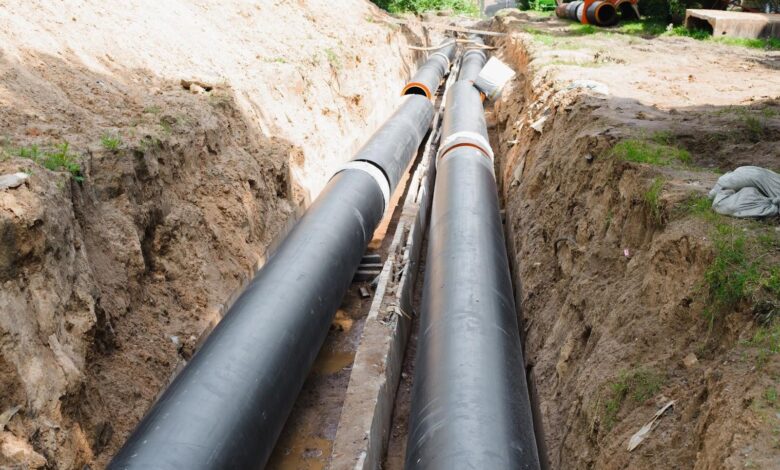Upgrading from Septic to Sewer: When and Why You Should Do It

If your home still relies on a septic system, you’re not alone. Many properties across Washington State — especially older or rural ones — were originally built with private septic systems. But as neighborhoods grow and public sewer systems expand, more homeowners are choosing to upgrade.
Switching from septic to sewer is a big decision, both financially and logistically. However, it can also be one of the best long-term investments you make for your home. Let’s explore when this upgrade makes sense and why it’s worth considering.
Understanding the Difference Between Septic and Sewer Systems
Before diving into the details, it helps to understand how each system works.
- Septic systems treat wastewater on-site, using a buried tank and drain field to break down and filter waste before releasing it back into the soil.
- Sewer systems transport wastewater through underground pipes to a centralized treatment facility managed by your city or municipality.
Both systems do the same job — but the way they manage waste, their upkeep, and long-term reliability can differ dramatically.
When Is It Time to Upgrade?
Not every homeowner needs to switch right away. But there are clear signs that your septic system might be nearing its end or becoming inefficient.
Here’s when you should consider upgrading:
- Frequent backups or slow drains: Constant clogs and backups often indicate a failing drain field.
- Odors or soggy spots in your yard: These can mean your system is leaking, which can become a health hazard.
- Aging system: Most septic systems last around 25–30 years. If yours is older, it might be time for an update.
- You’re remodeling or expanding your home: Adding bathrooms or building an addition increases wastewater output — and older septic tanks might not handle it.
- Public sewer access is now available: If your city has extended sewer lines to your area, connecting can make your property more convenient and valuable.
Why Upgrading to Sewer Is a Smart Move
Upgrading may seem costly upfront, but the long-term benefits often outweigh the expense.
1. Less Maintenance
Septic systems require regular pumping, cleaning, and inspections. Sewer systems are managed by your local utility provider, which means less responsibility and fewer maintenance worries for homeowners.
2. Increased Property Value
Homes connected to public sewer systems tend to have higher resale value. Buyers are often hesitant to deal with the maintenance costs or potential issues that come with septic systems.
3. Better Reliability
Public sewer systems are designed for consistent use and can handle more wastewater volume. You won’t have to worry about a tank overflowing after heavy rainfall or during large family gatherings.
4. Environmental Protection
Leaking or failed septic systems can contaminate groundwater and nearby waterways. Sewer systems safely transport wastewater to treatment plants, where it’s properly processed.
5. More Flexibility for Home Improvements
Planning to build an accessory dwelling unit (ADU), add a new bathroom, or install a large soaking tub? A sewer connection can handle those upgrades without overloading your wastewater system.
The Septic-to-Sewer Conversion Process
Many homeowners assume the switch will be complicated, but a professional septic-to-sewer conversion service can make it straightforward. Here’s what the process usually looks like:
- Site Inspection: A contractor examines your existing septic system and identifies where your home’s plumbing can connect to the public sewer line.
- Permitting: Your contractor handles the required local permits, which vary depending on your city or county.
- Trenching and Connection: The team digs a trench to connect your home’s wastewater line to the municipal main line.
- Septic Tank Decommissioning: The old tank is pumped, cleaned, and filled or removed according to local regulations.
- Testing and Final Approval: Once connected, everything is tested to ensure proper flow and compliance with local codes.
If you’re unsure where to start, you can always reach out to licensed sewer conversion experts who handle residential upgrades from septic systems and can guide you through the process.
What Does It Cost to Convert?
The total cost varies depending on your location, how far your property is from the nearest sewer main, and your landscape layout. While it’s not a small investment, most homeowners find the upgrade pays off over time through:
- Fewer maintenance costs
- Increased property value
- Greater convenience and reliability
Some cities in Washington even offer partial rebates or financing options for homeowners who make the switch, so it’s worth checking with your local utility office.
How to Prepare Before Making the Switch
If you’re considering upgrading, a bit of planning can help everything go smoothly:
- Check availability: Confirm that your neighborhood has access to a public sewer line.
- Get multiple quotes: Compare pricing and experience from different sewer installation professionals to ensure you’re getting fair value.
- Ask about timelines: Depending on soil type, property size, and weather, most conversions take a few days to complete.
- Plan for yard restoration: Since trenching is involved, you may need to reseed or replant areas of your yard afterward.
When Staying on Septic Still Makes Sense
In some rural parts of Washington, public sewer access isn’t available. If that’s the case, keeping your septic system is perfectly fine — as long as you maintain it properly.
Schedule regular pumping (every 3–5 years), avoid flushing non-biodegradable items, and inspect the drain field for signs of wear. But if you hear your city is expanding sewer access to your area, that’s the ideal time to start planning an upgrade.
Final Thoughts
Switching from septic to sewer is about more than convenience — it’s about safety, sustainability, and preparing your home for the future.
For homeowners in Washington, connecting to a public sewer line can mean fewer maintenance headaches, cleaner groundwater, and a higher property value down the line.
If your system is showing signs of age or you’re planning major home improvements, reach out to trusted septic-to-sewer conversion contractors experienced with local Washington regulations to explore your options. With the right professionals on your side, you can make the switch confidently and enjoy peace of mind for years to come.




